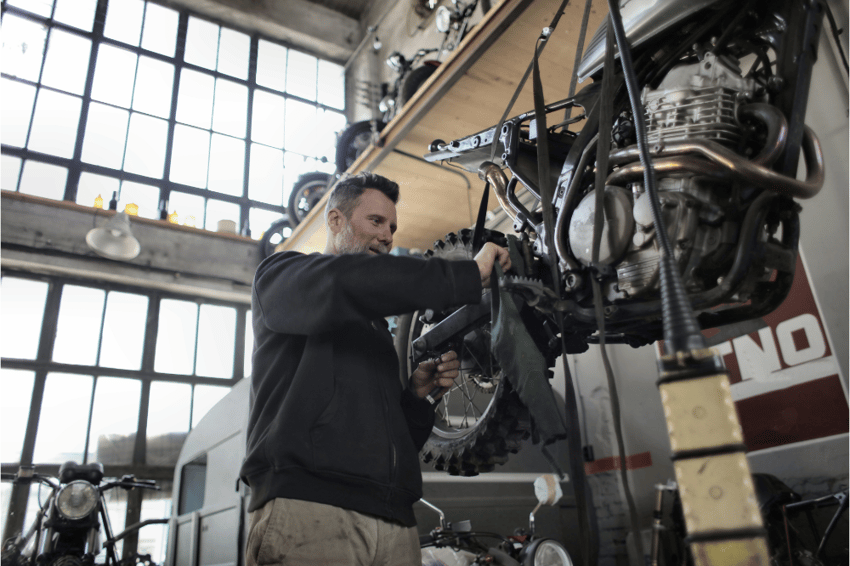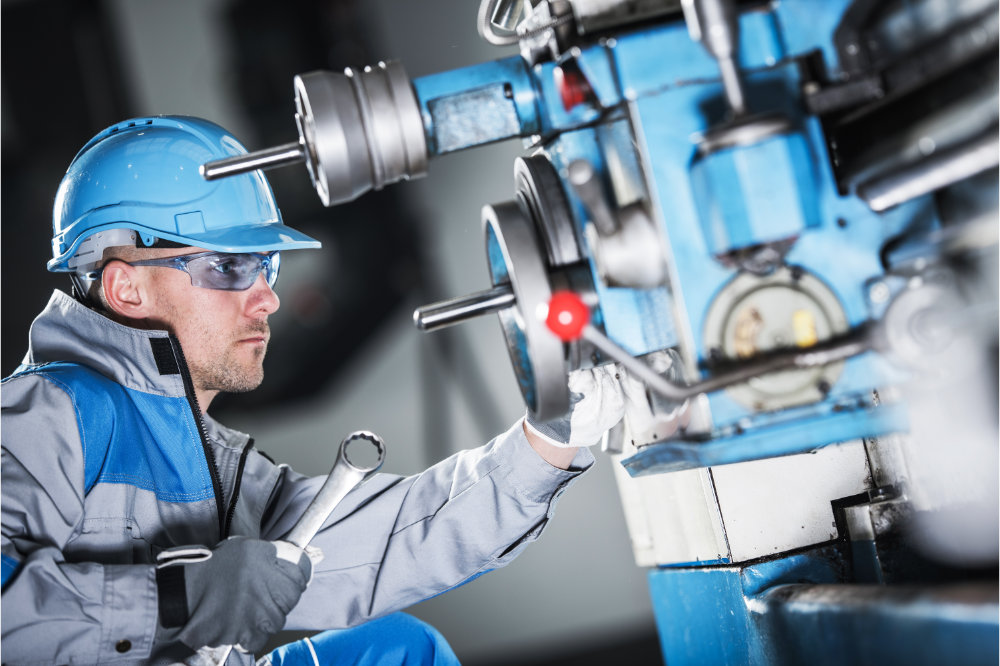7 skills you need to make it as a maintenance engineer
Working as a maintenance engineer is a rewarding and varied discipline which could provide you with the opportunity to work on a range of exciting equipment all over the world.
Your day-to-day tasks could include anything from general maintenance, repair and overhaul (MRO) to more specific work with hydraulics and electronics, and you could find yourself working on equipment such as state-of-the-art wheeled vehicles, advanced track vehicles, plant equipment, and even naval vessels.
So, whatever your experience and specialism, you’re sure to find a role for you. But what skills do you need to make it as a maintenance engineer? Read on to find out how to get into maintenance jobs…
7 skills you need to be a successful maintenance engineer
1. Communication skills
Communication is an essential skill for any role, but when you work as a maintenance engineer, it’s especially important.
Whether you’re explaining a maintenance task to someone in your team or are putting together a written report upon the completion of a job, you will need to communicate in a clear and concise way to ensure that your work is completed to a high standard.
Your communication skills could make the difference between getting the job done on time or not, so it’s integral that your ability to communicate is top notch!
2. Problem-solving skills
Problem-solving skills are without a doubt one of the most important skills that a maintenance engineer can have.
After all, your primary responsibility as a maintenance engineer is to solve problems, whether you are diagnosing faults or repairing equipment.
As such, problem-solving skills, the ability to make sound decisions quickly, and the ability to keep calm while doing so are all essential for maintenance roles in order for you to figure out what has gone wrong and why.

3. Organisational skills
Another key skill for a successful maintenance career is organisation. In your role as a maintenance engineer, you need to be detail-oriented and well organised, regardless of your position.
You will need to adhere to strict timelines and work at a fast pace without compromising safety and quality, and you will also need to successfully manage your responsibilities to ensure that everyone else is able to perform their job efficiently, too.
So, it’s no wonder that successful maintenance engineers have outstanding organisational skills!
4. Attention to detail
Attention to detail is essential too. After all, when inspecting and repairing equipment, you need to be aware of all the intricate details - so precision and accuracy are key.
Avoiding easy-to-miss errors can not only solve current problems but can also prevent future malfunctions, so having impeccable attention to detail is vital.
Plus, attention to detail is also important when it comes to being vigilant and remaining safe in the workplace.
5. Teamwork
Collaboration and communication within your team will ensure that projects are run effectively and efficiently, which means that being able to work as part of a team is an essential skill for maintenance engineers.
When you work as a maintenance engineer, many of your tasks will require you to work with others, so you need to be able to function as part of a bigger unit.
If you are working together with a wider team to repair a specific piece of equipment, for example, or if you need to work with the electronics team to ensure the safe repair of an aircraft component, your ability to work in a team could be the deciding factor in how successful your repair project is.
6. Relevant technical knowledge
When you apply for maintenance role, your potential employer will be looking for several specific industry skills to prove you’re right for the job.
For example, perhaps you’ve previously worked on heavy goods vehicles and are keen to progress to tracked vehicles, or maybe you have previously worked on Apache helicopters but are keen to try your hand at repairing and maintaining Chinooks.
Whatever your experience, having the relevant technical knowledge and understanding is essential.
7. Flexibility
When you work as a maintenance engineer in a contract role, no two days are the same. Of course, this means that you will never be bored and that you will enjoy a varied and exciting career.
However, it can also mean that last minute changes are sometimes inevitable. While you might be assigned to a specific set of tasks for the day, for example, you could be asked to provide your support on a different project at relatively short notice.
That’s why it’s so important to be flexible, quick on your feet, and be able to adapt easily.
Maintenance roles with M&E Global
If you want to develop your skills as a maintenance engineer and continue to build your expertise, overseas contracting with M&E Global is a great way to do so.
We have more than 20 years of experience in maintenance recruitment, so if you’re ready to find your perfect job and want to learn more about how to get into maintenance jobs, we’re here to help!
If you are currently searching for a new contract role, or are interested in looking for a new position in 2023, contact us today to see how we can help you shake up your career, or discover the characteristics of a successful contractor in this blog.

